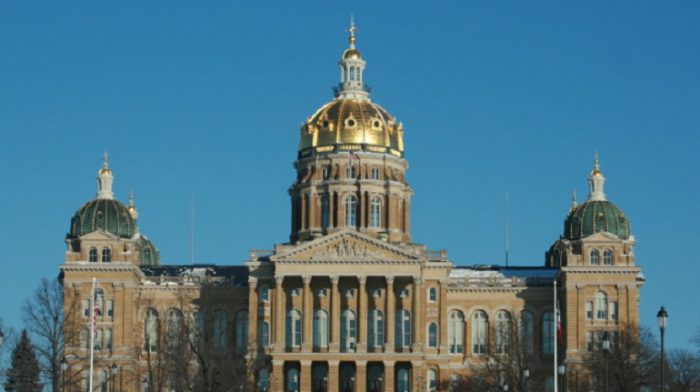Anti-EE Bill Advances in Iowa Legislature
Written by Leah Scull, Midwest Energy Efficiency Alliance, March 21, 2018
Last week the Iowa House Commerce Committee passed Senate File 2311, a bill that will significantly alter the way utilities drive customer energy savings programs in Iowa. The bill has already passed the Senate and is now eligible to go to a debate on the House floor.
What Would the Bill Do?
In its current form, the bill would make a variety of changes to the state’s energy efficiency policies, including a cap on energy efficiency that would not allow utilities to charge more than 2% of a customer’s bill to pay for both energy efficiency and demand response programs, as well as a switch from the Societal Cost Test to a Total Resource Cost Test.
A separate bill, SSB 3078, is currently in the Senate Ways and Means Committee. This bill would eliminate provisions relating to energy efficiency plans and programs for public utilities from the Iowa Code, effectively ending ratepayer-funded energy efficiency programs from investor owned utilities.
What is MEEA Doing?
On February 20, Senior Policy Associate Leah Scull and Residential Programs Associate Darlene Jackson met with several legislators in the Iowa House. In addition to familiarizing the representatives with MEEA’s HVAC SAVE program, MEEA staff discussed Iowa’s history of success with energy efficiency and dispelled some common myths and misunderstandings regarding energy efficiency, including the notion that the energy efficiency rider is a “tax” or “hidden fee.” MEEA staff explained that because energy efficiency programs reduce energy bill costs more than the charge on the bill, ratepayer funded energy efficiency lowers overall energy costs. Furthermore, rolling back energy efficiency reduces economic activity and decreases the number of state and local jobs, since energy efficiency programs are implemented by local contractors and retailers. Leah Scull returned to Des Moines on March 13 to meet with the Iowa House Commerce Committee members.
What Happens Next?
Senate File 2311 has taken multiple forms since its first introduction in the Senate committee. Originally, the bill called for a 15 MW industrial opt-out. An amendment was then added that would, alarmingly, make energy efficiency programs entirely optional for all customers, allowing them to ‘opt in’ every five years. This was eventually altered to an all customer opt-out, allowing any customer to opt-out of paying into the energy efficiency rider at any point during the five-year plan. The House Commerce Committee struck all opt-in/opt-out language in their meeting on Thursday and implemented the aforementioned 2% cap. Further amendments are expected to be added on the House floor, including the possibility of a return to the all-customer opt-out. Any version that differs from what the Senate passed will have to return to their floor for concurrence.
As noted earlier, Senate Bill 3078 currently is in subcommittee in the Senate Ways and Means Committee. The bill could advance out of the subcommittee to the full committee at any time. If passed out of committee and then passed by the Senate, the bill would need to also be passed by the House before going to the Governor.
The Governor’s office has not publicly stated a position on SF 2311 or SB 3078. If the bill passes with more than three days remaining in the legislative session, Governor Reynolds will have three days to sign or veto. If the bill passes within three days of the end of session, Governor Reynolds will have thirty days to veto or sign; if during those thirty days she takes no action, the bill fails.
For more information on the Iowa legislation, contact MEEA Senior Policy Associate Leah Scull.
This article originally appeared on mwalliance.org and was written by Leah Scull.
